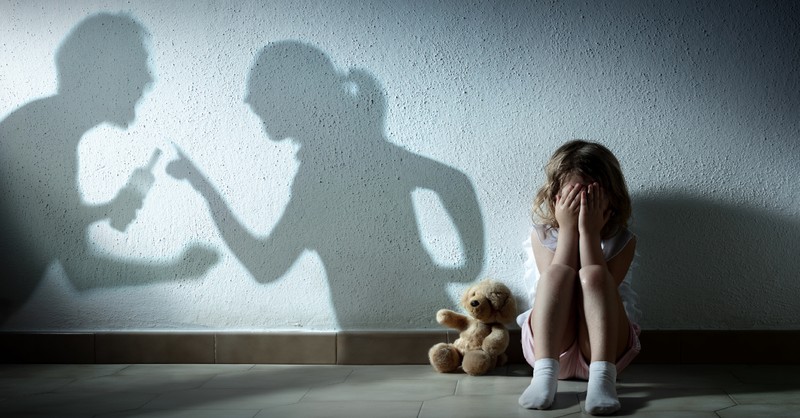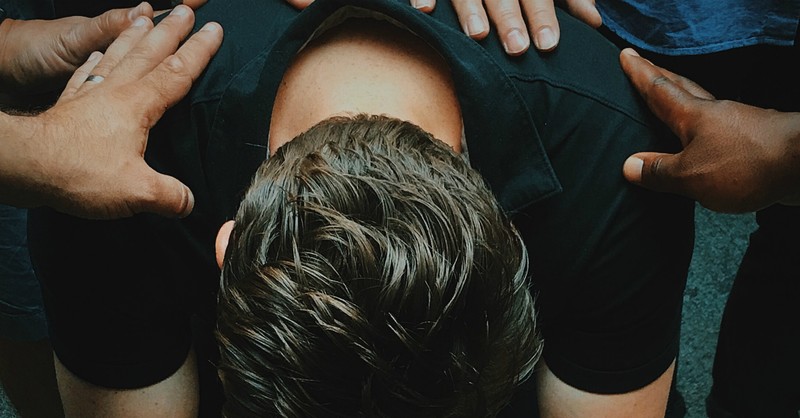Want more interaction with the women of iBelieve? Join our fans, writers, and editors at the iBelieve Facebook group, Together in Faith, for more videos, stories, testimonies, prayers and more. Visit here to join the community!

The word “trauma” sounds, well, dramatic. The term is usually associated with the experiences of prisoners of war, gunshot victims, Holocaust survivors, etc. I’ve discovered, however, that the experience of trauma is much more common than I thought.
For instance, one in ten children have experienced multiple kinds of traumatic experiences, and, according to Dr. Bessel van der Kolk, there are ten abused kids for every soldier serving in a war zone. Indeed, the definition itself, “severe psychological distress following any terrible or life-threatening event,” might apply to anyone who has experienced death, severe illness, or financial catastrophe.
Understanding what trauma is, and how to recover from it, can help all of us have the resilience to weather the trails of this broken world with much less pain and shame.
Photo Credit: © Getty Images/Victor Tongdee

1. It’s Normal to Avoid, Numb, and Deny Our Trauma
We talk about people being “in denial” as if it’s a choice. But traumatic events are so threatening that denial is part of how we survive. It’s like the physical shock people experience after a gunshot wound—our body shuts down to protect itself.
As Bessel van der Kolk puts it, “…traumatized individuals…cannot tolerate remembering [trauma]…and also resort to using drugs, alcohol, or self-mutilation to block out their unbearable knowledge…”
Our “bootstrap” culture has little grace for people who abuse alcohol or drugs, deny their bad behavior, or run out on their families. Yes, these are destructive behaviors that hurt other people terribly. But before we judge, we must have empathy and curiosity about the roots of such destructive behaviors in others—and ourselves. We may have more complex reasons for our sins than we know.
Photo Credit: © Unsplash/Jordan Bauer

2. You May Not Know You’ve Experienced Trauma
One day in my late thirties, I recalled a moment in fourth grade. I’d gotten strangely upset when a neighbor I had never met died. As I wondered why I’d been so affected, I did the math—and I realized he died not long after my sister had disappeared from our home.
I was upset because my sister’s disappearance was like a death, but I hadn’t mourned her.
As an adult, the realization gutted me. I began to wail.
I had no idea I was carrying such pain.
Because trauma is so upsetting, because we have to avoid it to survive, it’s quite common to have no idea you’ve gone through it. We explain away our worst experiences, minimize them, or second-guess ourselves.
Part of healing is giving ourselves permission to name our hurts and seek help from God and other people.
Photo Credti: © Getty Images/Romolo Tavani

3. What “Counts” as Traumatic Depends on the Person
Suffering is not the Olympics. Despite my real loss, I was raised in a white, wealthy family; I have no idea what living with poverty or racism is like.
But though my hardship was limited, it doesn’t erase my experience. Each kind of pain is important to God. It all needs healing and empathy.
Yes, some people complain mightily about seemingly minuscule problems—but consider that their denial and numbness is itself a symptom of the brokenness of our world. We are broken this side of paradise; some of us express that in healthier ways than others. We need to have grace for each human person as Christ Jesus did, honoring others’ brokenness in healthy ways.
Photo Credit: © Getty Images/tommaso79

4. Religion Can Be a Source of Trauma or a Way to Numb Ourselves
I came to Jesus because of family pain—and thought anything labeled “Christian” could help me.
Then I experienced spiritual abuse at the hands of a pastor. Later, I used faith itself as a way to numb, avoid, and deny my pain. It took years of healing to free my faith from the behaviors I’d learned as a hurting child.
Faith can bring life—but we always live it out as human beings. Assuming that something labeled “Christian” will magically help every single person is naïve. Trusting that Christian authorities are invariably healthy and well-intentioned is dangerous. We need the deep discernment of the Holy Spirit to address trauma, abuse, and avoidance in the church.
Photo Credit: © NeOnbrand/Unsplash

5. You Can Hurt Someone Even if Your Intentions Are Good
In college, I hoped to help lead worship in my college ministry. My discipler turned me down; I hadn’t met certain requirements that I hadn’t known existed.
Her words felt like condemnation. From then on, I ignored my own limits to please the organization. But my efforts weren’t healthy; by graduation, I was severely depressed.
I stayed angry for decades.
Years later, we ran into each other, and I told her my story. She was gracious and apologetic. She had been inexperienced; I had also not communicated clearly with her. Her humble graciousness astonished me.
Despite her excellent intentions, I still experienced harm. However, her grace healed our relationship.
There’s a reason we say “The road to hell is paved with good intentions.” Intentions count, but ultimately, our impact is what matters. Only through humility, grace and empathy can we heal the inadvertent harm we cause each other.

6. Healthy Relationships Are the Best Therapy for Trauma
In his book, The Boy Who Was Raised as a Dog, psychologist Bruce Perry recounts his experience helping kids from the destroyed Branch Davidian compound. Some of the children were sent to relatives (many of whom were still Koresh followers); others were housed in a group home with professionals on call 24/7.
To Perry’s surprise, the kids sent to family members recovered most completely from trauma, even when their family members still followed Koresh’s teachings.
The experience humbled him. He commented, “People, not programs, change people.”
Medications, hospitalization, and professional help are essential tools for healing, but it’s connection to families, friends and churches that make those professional tools most effective. God made us for communion—and without it, people don’t thrive.
Photo Credit: © Getty Images/AntonioGuillem

7. Trauma Affects Your Physical Self, and Listening to Your Body Is Part of the Healing
All of the people I know who have PTSD also have some other chronic illness. I once thought that was simply bad luck. Then I read Bessel van der Kolk’s book, The Body Keeps the Score.
Van der Kolk cited a study of survivors of childhood incest. The trauma survivors had abnormalities in their immune system’s cells compared with the control group.
But Van der Kolk has also studied the effects of body-focused activities like yoga and dance on survivors. Trauma disassociates us from our physical selves. As Van der Kolk puts it, “If you are not aware of what your body needs, you can’t take care of it.” Studies are beginning to show that disciplines like yoga and dance help us heal our relationship to our physical selves.
Photo Credit: © Getty Images/XiXinXing

8. Recovering from Trauma Involves Trusting Yourself
One of the single biggest barriers to my own healing from trauma was the Church’s teaching on denying ourselves.
The church warned me about the dangers of:
- My emotions: They were the optional “caboose” in the train of faith, as Bill Bright put it.
- My desires: They were invariably worldly and sinful.
- My judgement: It was pride talking.
There is some truth to all of these cautions—we are all prone to self-deception and pride. However, when you are abused, your abuser strips away even your healthy self-regard, inner resources, and emotional integration.
As Bruce Perry put it, “To develop a self, one must exercise choice and learn from the consequences of those choices; if the only thing you are taught is to comply, you have little way of knowing what you like and want.”
As a result, teaching only self-denial can reinforce, not heal, abuse.
When Jesus calls us to deny ourselves, he is talking about our shadow selves, not the healthy imago dei in each of us. But often the church doesn’t make any distinction between the two. It’s no wonder that Christian trauma survivors like me often try to quash even their God-given emotions, self-love, and discernment.
Photo Credit: © Unsplash/Eunice Lituanas

9. The Church Has a Role to Play in Helping Us Heal
If we’re not informed about trauma, we can easily cause harm to survivors. Our theology, lay ministries, pastoral training, and church communities must get wise to how trauma works, what it looks like, and how to recognize it. We must do the work to heal from our own trauma instead of using religion to pretend we’re #blessed. And we must create robust communities of love and belonging that serve as the foundation for recovery for every brokenhearted person.
Thanks to be God—the church has unique access recovery. Ours is the unconditional love of Christ, the healing community of the church, and the beautiful, God-given temple of our minds, bodies and spirits. Together, we can heal from trauma together—and better bless a world that desperately needs God’s love.
Photo Credit: © Unsplash/Jon Tyson
Originally published Friday, 26 June 2020.








